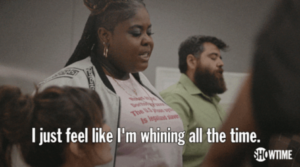Transcript
Bonjour tout le monde. Welcome to another French lesson. Today, we're going to look together at some synonyms for the word "oui", to accept a proposal or to validate something someone tells you.
The synonyms for "yes" we're going to look at today are words used in colloquial language. That's the first thing to bear in mind. We're going to look at colloquial words. The second thing to bear in mind is that these synonyms for "yes" are not used in every context.
Some will be used to respond positively to a proposal or request, while others will be used to answer questions you're asked about yourself, your tastes, and so on. Sometimes these words are used in both contexts. Of course, we're going to see two or three contextualizations each time, as I'm wont to do.
The aim of this video is above all to help you understand when you're watching films, series or listening to French people talk. Because in everyday exchanges, we often use these synonyms for "yes" or "okay".
Before you start, don't forget to put a j'aime on the video. If you are not yet a subscriber, please subscribe and activate the bell to receive all my videos and not miss any.
🚀 Transform your understanding of French IN 15 MINUTES A DAY
60 dialogues to boost your understanding of French 🇫🇷
Let's start with the first one, synonymous with "yes", which is "it works". It works. Ça marche means yes, in the sense of okay. You use it to respond positively to a request or proposal. You agree with a piece of information. Can you help me make pancakes for a snack? I'm in. I'll be there in five minutes. You can bring your speaker so you can listen to music at the party. You've got it. I'll put it in my bag right away so I don't forget it.
Ça roule. Ça roule is just like "ça marche", a synonym for "yes", meaning "okay". You agree with a proposal or you agree to do something you're asked to do. What time does the party start? Tonight at 9 p.m. All right, I'll be there. Sounds good. Could you pick up a couple of bottles of milk at the supermarket, please? No problem. I'll put it on my shopping list.
OK. Ok, again, used as "d'accord" to respond positively to a proposal or request. It's an anglicism that's used a lot in French, especially in writing. We use it a lot.
How about a weekend at the seaside next month? OK, I'll take two days off. Can you help me revise my French? OK, give me your vocabulary sheet and I'll help you revise.
Yeah. Yeah. Yeah, it's a derivative of yes. Yeah. Yeah, it's used both to respond positively to requests, to proposals, but also to questions about you. For example, if someone asks you what you do for a living or what you like to eat, to questions about you, about your tastes. Yeah, it's even more familiar than "OK" or "it works".
Did you have a good weekend? Yeah, really good. How about you and I order a pizza tonight? Yeah, sounds good. Could you pass the salt, please? Yeah, sure.
Yes is the English word for "yes", but more and more it's being used in French, in conversations between friends, in familiar conversations. Very quickly, we're saying "yes" instead of oui.
Here again, it can be used to respond positively to requests, proposals or questions about yourself. Younger people in particular will use the word "yes". Our grandparents, for example, obviously don't use it. Did you book the restaurant for tonight? Yes! I've made a reservation for 8 p.m. Can you hand me the remote? Yes! Here it is! You did an Erasmus in Italy, didn't you? Yes, I did my Erasmus in Rome.
And finally, a little bonus, but which is actually a derivative of "ouais" and "yes". We change the last letters to a "p" and say "yep" or "yep". Again, this is very, very familiar. It's the youngest who will use it. And "yep" can be written in different ways. Either "o u a i p" or "o u e p".
Would you like some tea? Yep, I would, please. You're doing a master's in psychology, aren't you? Yep, at the Sorbonne in Paris. Here, but like "ouais" and "yes", we use it to respond to requests, proposals, but also to personal questions.
If you liked this video, don't forget to put a "like" and above all, subscribe. See you next week.








